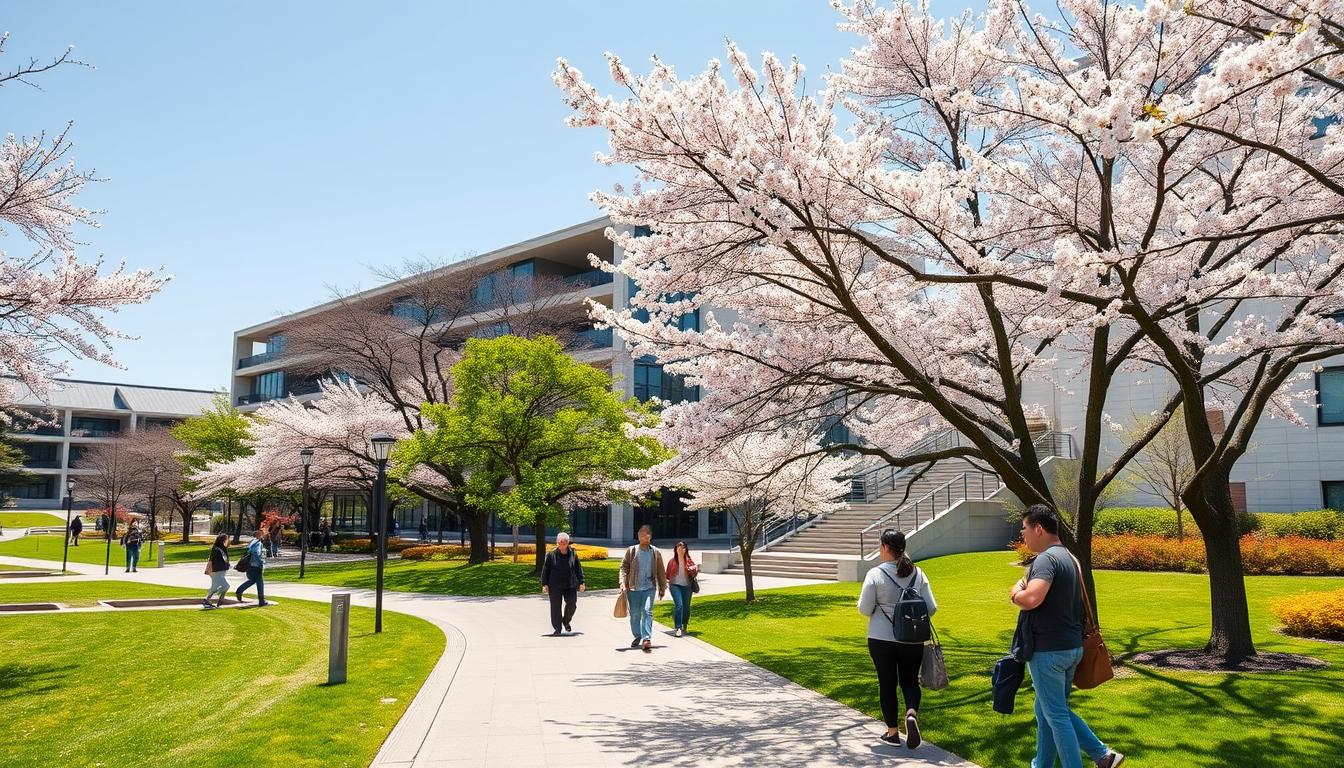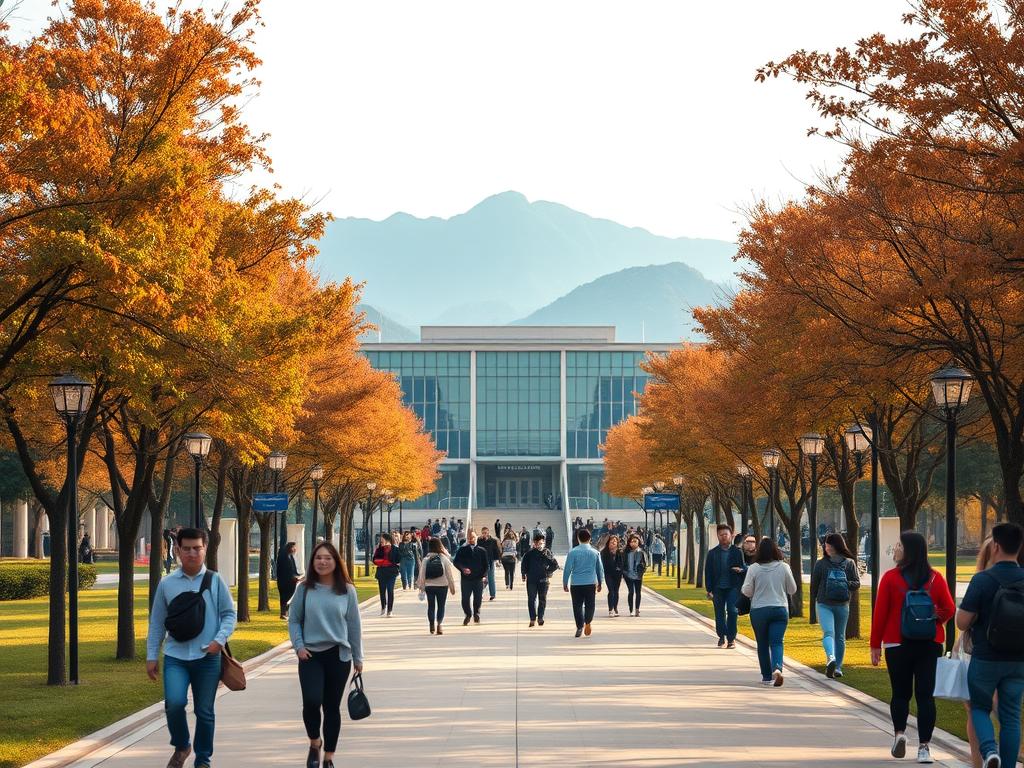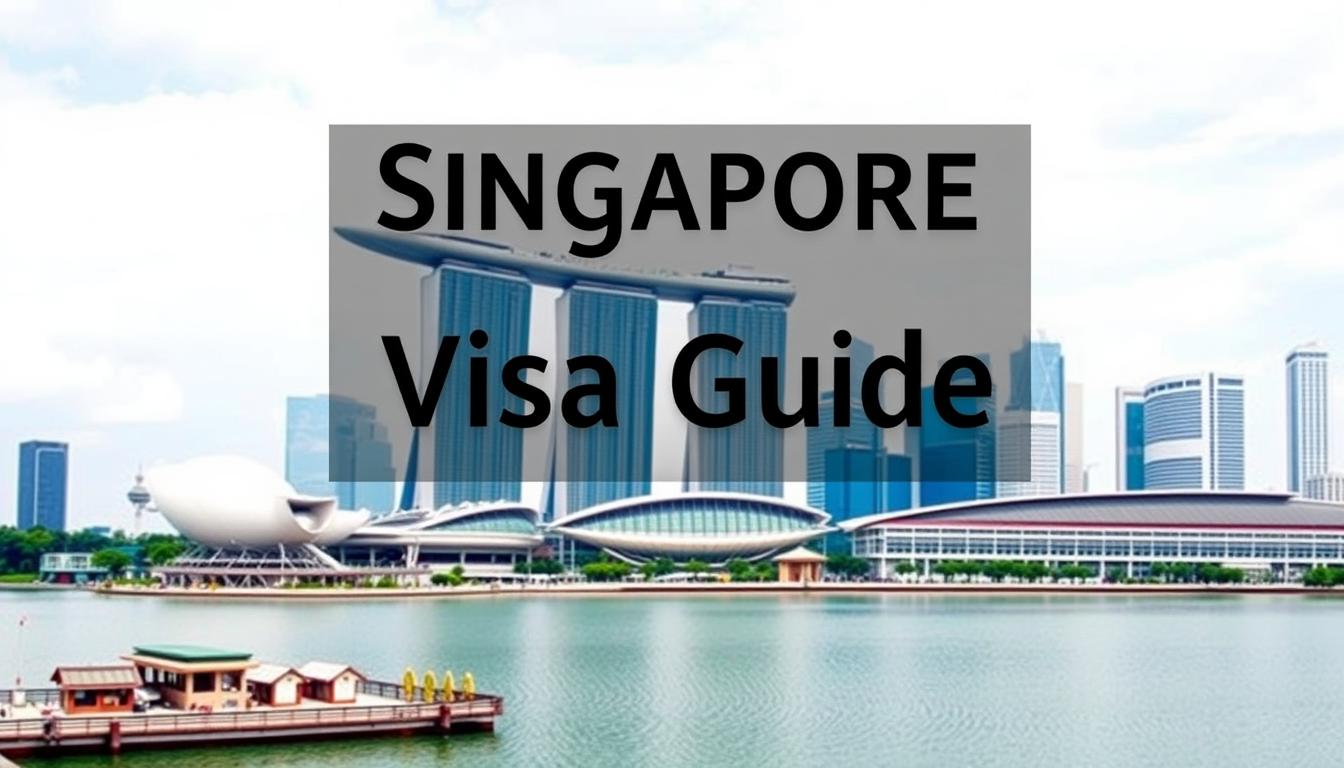Save Time on Your Visa Application!
Download our free Japan Study Visa Checklist to ensure you have all the required documents and follow the correct procedures.
Japan Study Visa Overview
A Japan Study Visa (officially called “Student” status of residence) allows international students to study at Japanese educational institutions for periods ranging from 3 months to 4 years and 3 months. This visa is essential for anyone planning to study in Japan for more than 90 days.
Obtaining a student visa for Japan involves two main steps: first, securing a Certificate of Eligibility (COE) through your educational institution, and second, applying for the actual visa at a Japanese embassy or consulate in your home country.
Benefits of a Japan Study Visa
- Legal stay in Japan for the duration of your studies
- Permission to work part-time (up to 28 hours per week)
- Access to student discounts on transportation and attractions
- Eligibility for Japanese national health insurance
- Potential pathway to work visas after graduation
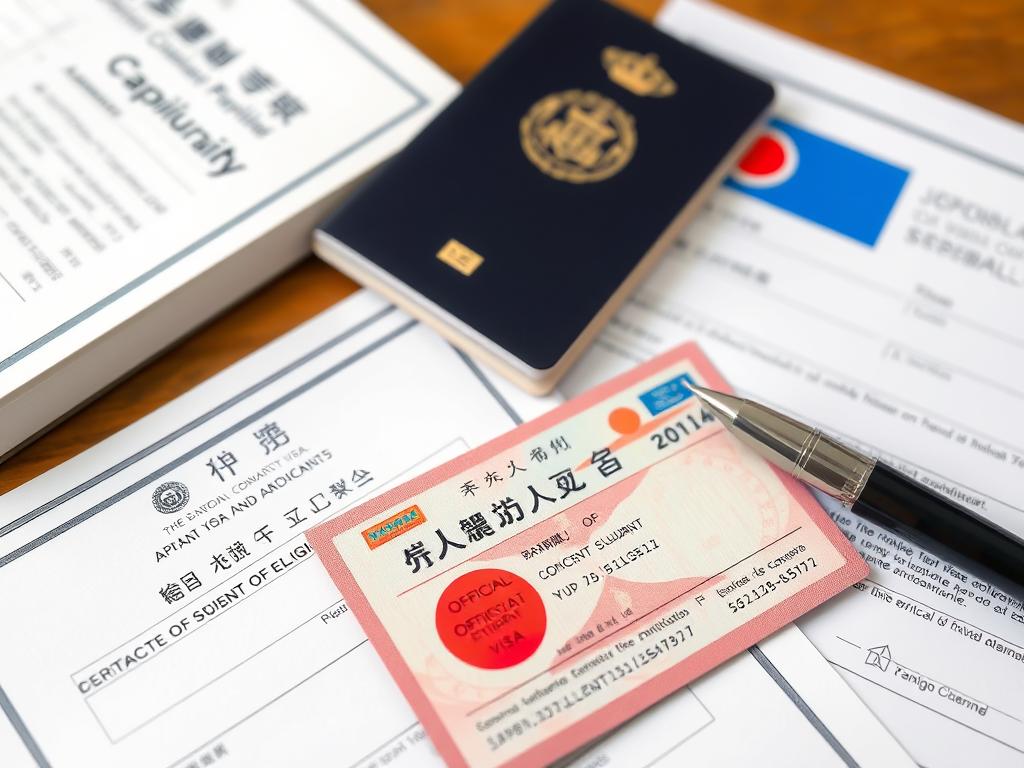
Types of Japanese Student Visas
While all international students receive the “Student” status of residence, the duration of stay varies depending on your program of study. Here’s a breakdown of the typical visa periods:
| Program Type | Typical Visa Duration | Renewable? | Work Permission |
| Japanese Language School | 6 months – 1 year 3 months | Yes (up to 2 years total) | Yes (with permit) |
| Undergraduate University | 1 year – 4 years 3 months | Yes | Yes (with permit) |
| Graduate School | 1 year – 4 years 3 months | Yes | Yes (with permit) |
| Technical/Vocational School | 1 year – 2 years | Yes | Yes (with permit) |
Important: The “Student” visa is different from a “Cultural Activities” visa or “Temporary Visitor” status. You cannot enter Japan on a tourist visa and then change to a student visa while in the country.
Visa Requirements & Documentation
The Japan Study Visa application requires several documents that prove your identity, academic background, and financial capability. Here’s what you’ll need:
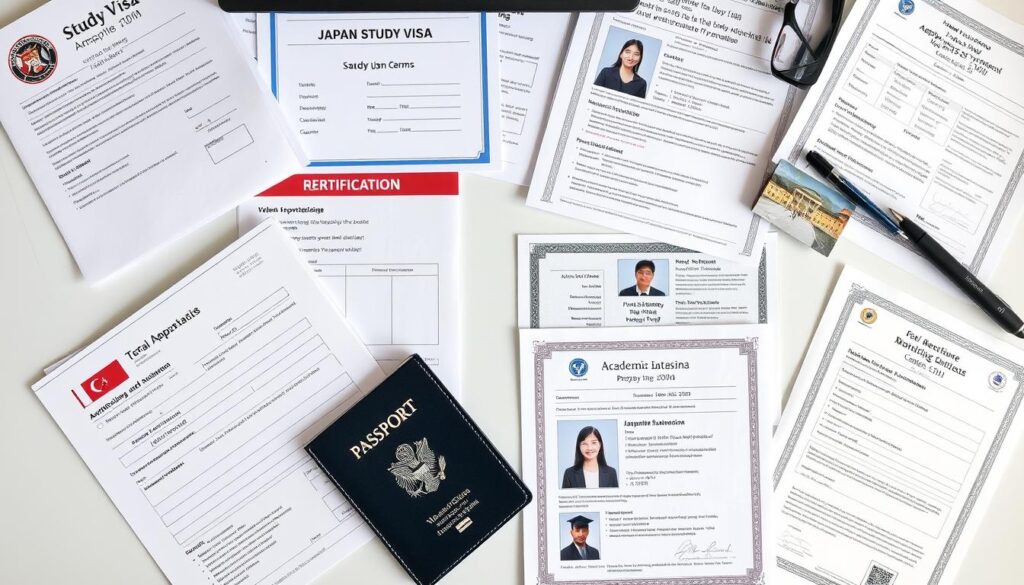
Personal Documents
- Valid passport (with at least 6 months validity)
- Visa application form (from Japanese embassy)
- Recent passport-sized photographs (4cm×3cm)
- Certificate of Eligibility (original and copy)
Academic Documents
- Graduation certificate from last school attended
- Academic transcripts
- Japanese language proficiency certificate (if applicable)
- Letter of acceptance from Japanese institution
Financial Documents
- Bank statements (showing sufficient funds)
- Scholarship award letters (if applicable)
- Financial supporter’s income certificate
- Letter of financial support (if sponsored)
Need Help With Your Documents?
Our visa experts can review your application materials and provide personalized guidance to maximize your chances of approval.
Step-by-Step Application Process
The Japan Study Visa application process involves several stages, from school application to your arrival in Japan. Here’s a comprehensive breakdown:
-
Apply and Get Accepted to a Japanese School
Research and apply to Japanese universities, language schools, or vocational institutions. Once accepted, the school will guide you through the next steps.
-
School Applies for Certificate of Eligibility (COE)
Your school will apply for your COE at the Immigration Bureau in Japan on your behalf. This typically takes 2-3 months to process.
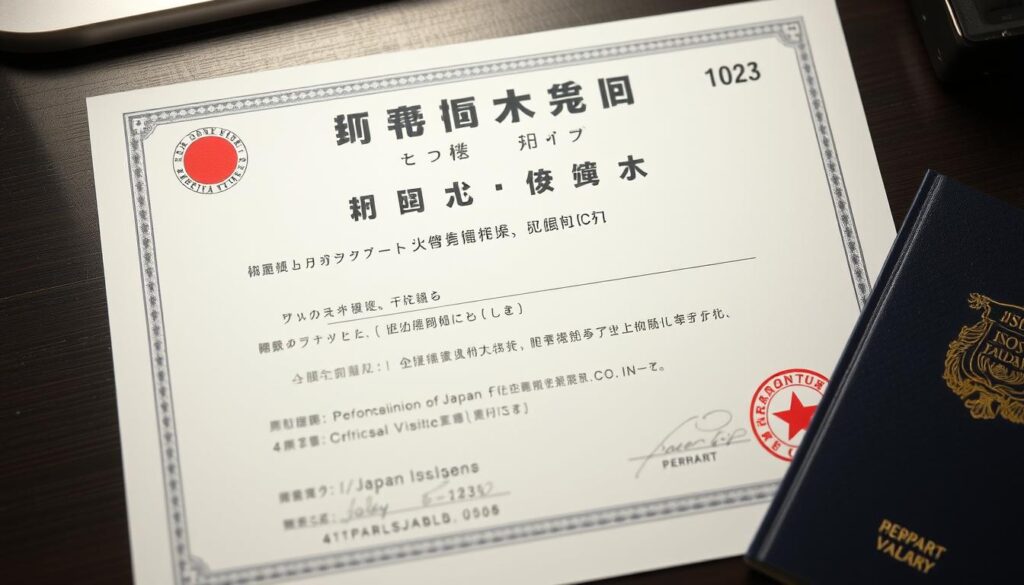
-
Receive Your COE
Once approved, your school will send you the original COE by mail. Some embassies now accept electronic copies.
-
Apply for Student Visa at Japanese Embassy
Take your COE, passport, visa application form, and photos to the Japanese embassy or consulate in your country. Processing typically takes 5-7 business days.
-
Receive Your Visa and Prepare for Departure
After receiving your visa, book your flight to Japan. Keep your COE with you as you’ll need it at immigration.
-
Enter Japan and Complete Registration
Upon arrival, you’ll receive your residence card at the airport. Within 14 days, register your address at the local municipal office.
“The most important thing is to answer all questions on the COE application truthfully. Immigration officials verify information, and any discrepancies can lead to visa denial.”
Financial Requirements
Demonstrating sufficient financial resources is crucial for your Japan Study Visa application. Immigration officials want to ensure you can support yourself during your studies without financial hardship.
Recommended Financial Evidence
Most schools and immigration offices recommend showing access to approximately 2,000,000 yen (approximately $13,500 USD) for one year of study. This should cover your tuition fees and living expenses.
Acceptable Financial Documents
- Bank statements (showing sufficient balance)
- Income certificates of financial supporter
- Tax returns from previous years
- Scholarship award letters
- Proof of other assets or income sources
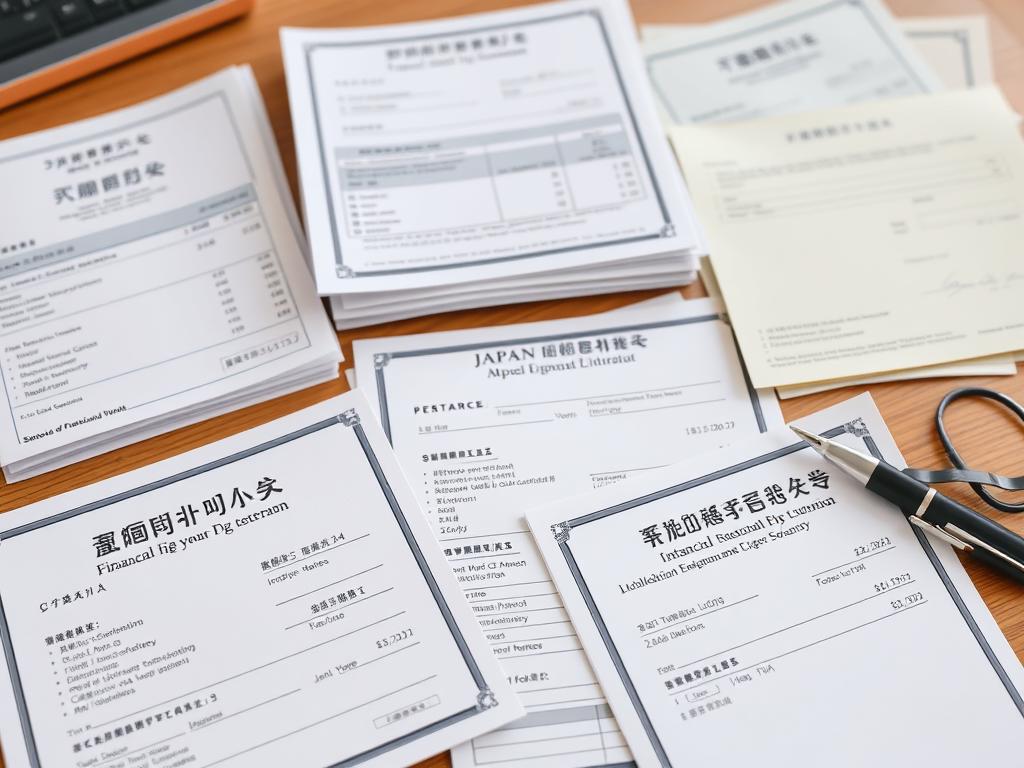
Pro Tip: If you’re being financially supported by someone else (like parents or a sponsor), you’ll need to submit a letter of financial support along with their financial documents. All documents must be in either Japanese or English, or be accompanied by an official translation.
Calculate Your Financial Requirements
Use our free calculator to determine exactly how much funding you need to show for your specific study program and location in Japan.
Working While Studying in Japan
One of the benefits of a Japan Study Visa is the ability to work part-time while studying. This can help offset your living expenses and provide valuable work experience in Japan.
Work Regulations for International Students
- Maximum 28 hours per week during school terms
- Up to 40 hours per week during official school holidays
- Must obtain “Permission to Engage in Activity Other Than That Permitted Under the Status of Residence Previously Granted”
- Cannot work in businesses related to the adult entertainment industry

Popular Part-Time Jobs for International Students
| Job Type | Average Hourly Wage | Japanese Level Required | Availability |
| Restaurant/Cafe Staff | ¥1,000 – ¥1,200 | Basic-Intermediate | High |
| Convenience Store Clerk | ¥950 – ¥1,100 | Basic-Intermediate | High |
| English Teacher/Tutor | ¥1,500 – ¥3,000 | Minimal | Medium |
| Hotel Staff | ¥1,000 – ¥1,500 | Intermediate | Medium |
Procedures After Arrival in Japan
Once you arrive in Japan with your student visa, there are several important procedures you need to complete:
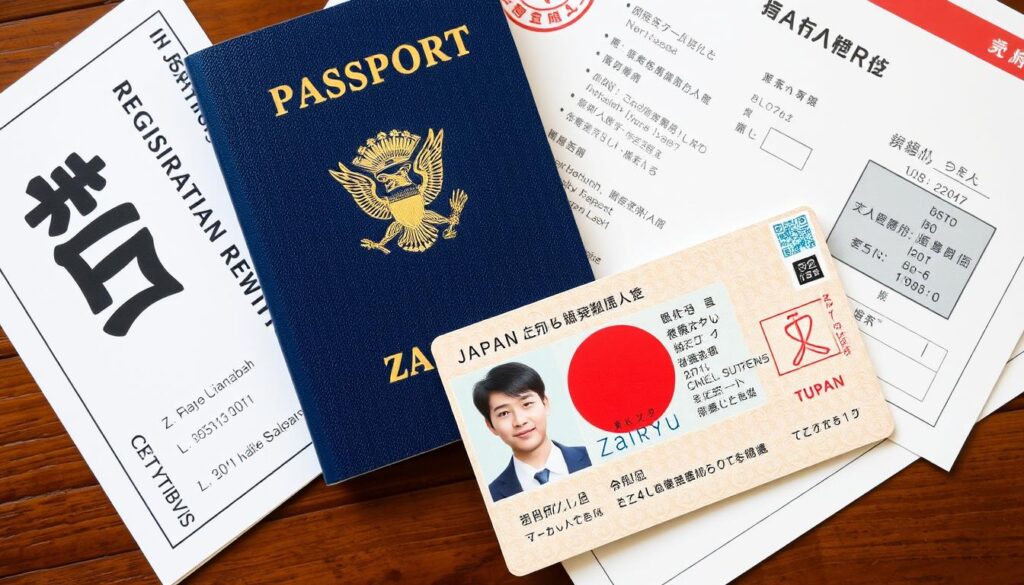
-
Receive Your Residence Card
When entering Japan through major airports (Narita, Haneda, Kansai, etc.), you’ll receive your residence card (zairyu card) at immigration. If arriving at other airports, you’ll get a stamp in your passport, and the card will be mailed to your registered address later.
-
Register Your Address
Within 14 days of finding accommodation, you must register your address at the local municipal office (city hall, ward office, etc.).
-
Enroll in National Health Insurance
All residents in Japan, including international students, must enroll in the National Health Insurance system at the municipal office. This typically covers 70% of medical expenses.
-
Open a Bank Account
You’ll need a Japanese bank account for receiving scholarships, part-time job payments, and handling daily expenses.
-
Apply for Work Permission
If you plan to work part-time, apply for “Permission to Engage in Activity Other Than That Permitted” at the regional immigration office or at the airport upon arrival.
-
Receive My Number Card
You’ll receive a notification about your “My Number” (social security and tax number) at your registered address. This 12-digit number is used for various administrative procedures in Japan.
Important: Always carry your residence card with you at all times in Japan. It’s legally required, and police may ask to see it during random checks.
Real Student Experiences

Maria from USA
“The visa process seemed intimidating at first, but my language school handled most of the COE application. I just had to provide financial documents and my academic history. The whole process took about 2 months, and I received my visa without any issues.”
Studying: Japanese Language + Business

Rahul from India
“I applied for my student visa to study engineering in Osaka. The financial documentation was the most challenging part, as I needed to show sufficient funds. My university was very helpful throughout the process, and I received my COE in about 10 weeks.”
Studying: Engineering

Lucia from Brazil
“I received a MEXT scholarship to study arts in Kyoto, which simplified my visa process. The scholarship documentation served as proof of financial support. My advice is to start the application early and respond quickly to any requests for additional information.”
Studying: Fine Arts
Get Expert Guidance for Your Japan Study Visa
Our team of visa specialists can help you navigate the application process, review your documents, and maximize your chances of approval.
Frequently Asked Questions
How long does it take to get a Japan Study Visa?
The entire process typically takes 2-3 months. The Certificate of Eligibility (COE) processing takes about 1-2 months, and once you receive it, the actual visa application at the Japanese embassy takes about 5-7 business days.
Can I bring my family members on a Japan Study Visa?
Yes, you can bring your spouse and children as dependents. You’ll need to apply for “Dependent” visas for them after you’ve received your student visa and arrived in Japan. They’ll need to provide marriage/birth certificates, your residence card copy, and proof that you can support them financially.
What happens if my Japan Study Visa application is rejected?
If your application is rejected, you’ll typically not be given a specific reason. Common reasons include insufficient financial documentation, incomplete application forms, or concerns about your intention to return to your home country. You can reapply after addressing these potential issues, but it’s recommended to wait at least 6 months before reapplying.
Can I extend my Japan Study Visa?
Yes, you can extend your student visa as long as you continue to be enrolled in a full-time educational program. The extension application should be submitted at the local immigration office about 3 months before your current visa expires. Your school will provide the necessary documentation for the extension.
Do I need to know Japanese to get a Japan Study Visa?
It depends on your program. If you’re enrolling in a Japanese-taught program, you’ll need to demonstrate Japanese language proficiency (typically JLPT N2 or higher). For English-taught programs, Japanese proficiency is not required for the visa, though basic Japanese skills will help with daily life in Japan.
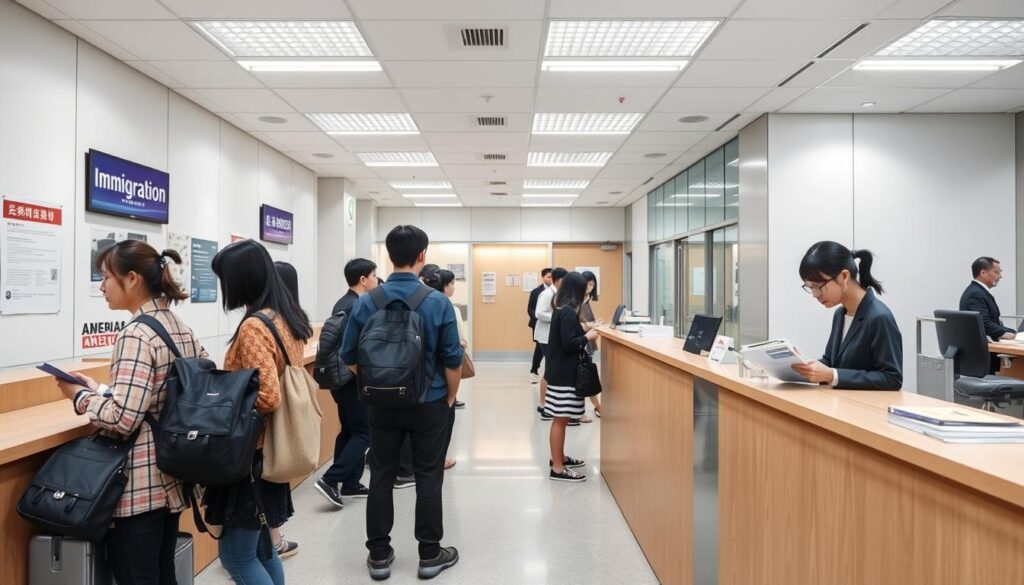
Ready to Start Your Japan Study Journey?
Obtaining a Japan Study Visa may seem complex at first, but with proper preparation and guidance, the process can be navigated successfully. Remember to start your application early, prepare all required documents carefully, and maintain open communication with your Japanese educational institution throughout the process.
Begin Your Japan Study Visa Application Today
Our team of experienced visa consultants can guide you through every step of the process, from school selection to document preparation and visa application.
